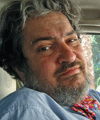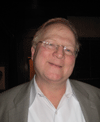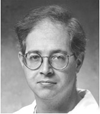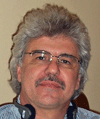 Every working morning
for twenty years it’s the same. A funny hesitation, a mild
tendency to procrastinate. Do I dislike my practice? No. I love to
give anesthetics, the messier the better. From time to time, I toyed
with why I should feel this reticence, poking at it in my mind the way a person will
poke at something caught between their teeth. And then one day, I
happened across a passage from William Carlos Williams’
auto-biography. Williams was a practitioner in Patterson NJ back in
the early part of the century, a brilliant poet, and a clear eyed observer of his practice and the human condition. He wrote:
Every working morning
for twenty years it’s the same. A funny hesitation, a mild
tendency to procrastinate. Do I dislike my practice? No. I love to
give anesthetics, the messier the better. From time to time, I toyed
with why I should feel this reticence, poking at it in my mind the way a person will
poke at something caught between their teeth. And then one day, I
happened across a passage from William Carlos Williams’
auto-biography. Williams was a practitioner in Patterson NJ back in
the early part of the century, a brilliant poet, and a clear eyed observer of his practice and the human condition. He wrote:
I would start out on my morning calls after only a few hours' sleep, sit in front of some house waiting to get the courage to climb the steps and push the front door bell. But once I saw the patient all that would disappear. In a flash the details of the case would begin to formulate themselves into a recognizable outline...Along with that the patient himself would shape up into something that called for attention, his peculiarities, her reticences or candors. And though I might be attracted or repelled, the professional attitude which every physician must call on would steady me, dictate the terms on which I was to proceed.
And I thought, “that’s it!” Every working day, I take lives into my hands. Now that sounds corny and melodramatic. But it’s not. We don’t wander around like actors in some TV show, each step imbued with “terrible purpose.” We walk around worrying about our kids report cards and our leaky plumbing, but that other thing is always there not very far back in our minds, like the thanksgiving turkey you can’t smell roasting after a few minutes, but if you go outside and come back in, the odor is overwhelming. Each morning, I - we all, dive in to the lives of other people - suffering, frightened, hopeful people, and we assume virtually total responsibility for their well being. We give them whatever informed consent we feel we must, and then we reassure them; with our manner, with our matter-of-factness, we reassure them that we are in control. Now, I know bus drivers, pilots, taxi drivers, teachers; they all take responsibility for the well being of others. But for us, it's different; maybe it's because the patients are so scared and vulnerable, or maybe it's the part where we put them into drug-induced comas... Then again, maybe it's just being around surgeons. That assumption of total responsibility is a weighty emotional burden.
Long ago, my preop interview became
less pre-flight check-list and more gut-check and sniffing for smoke.
(I'll write more about sniffing for smoke in another post)
Paradoxically perhaps, the most important thing to me is to bond to the
patient; it's the second part of that WCW observation. I might do eight or ten
cases in a
day; the consequence of treating my work as a technical exercise is
the risk of inattention and the sort of boredom that drives the
desperate discontent that I see in so many of my colleagues.
I spend a minute or two, sometimes more, at the start of each pre-op just SEEING THE PERSON. If the planned operation is in any way serious, I start by offering my condolences that the patient needs to undergo the ordeal at all. People are frequently taken aback by this; patients sometimes tell me that I’m the only caregiver in their experience that has stopped to offer sympathy (could this be possible!?); occasionally they cry. I get a few thank you notes. (For caring?) I mostly do this as a way to dope-slap myself into being sure I’m not just “passing gas.” And not just because I don't think I could get good outcomes by just “passing gas;” but because if I were just “passing gas” for thirty years, I'd come to hate it, or hate medicine, or hate myself, or hate the world…
As the Buddha said, "Work out your own salvation with diligence."
This, then, is part of mine.
 Mitch Keamy is an anesthesiologist in Las Vegas Nevada
Mitch Keamy is an anesthesiologist in Las Vegas Nevada
 Andy Kofke is a Professor of Neuro-anesthesiology and Critical Care at the University of Pennslvania
Andy Kofke is a Professor of Neuro-anesthesiology and Critical Care at the University of Pennslvania
 Mike O'Connor is Professor of Anesthesiology and Critical Care at the University of Chicago
Mike O'Connor is Professor of Anesthesiology and Critical Care at the University of Chicago
 Rob Dean is a cardiac anesthesiologist in Grand Rapids Michigan, with extensive experience in O.R. administration.
Rob Dean is a cardiac anesthesiologist in Grand Rapids Michigan, with extensive experience in O.R. administration.
beautiful.
Posted by: asher | July 26, 2024 at 06:41 PM